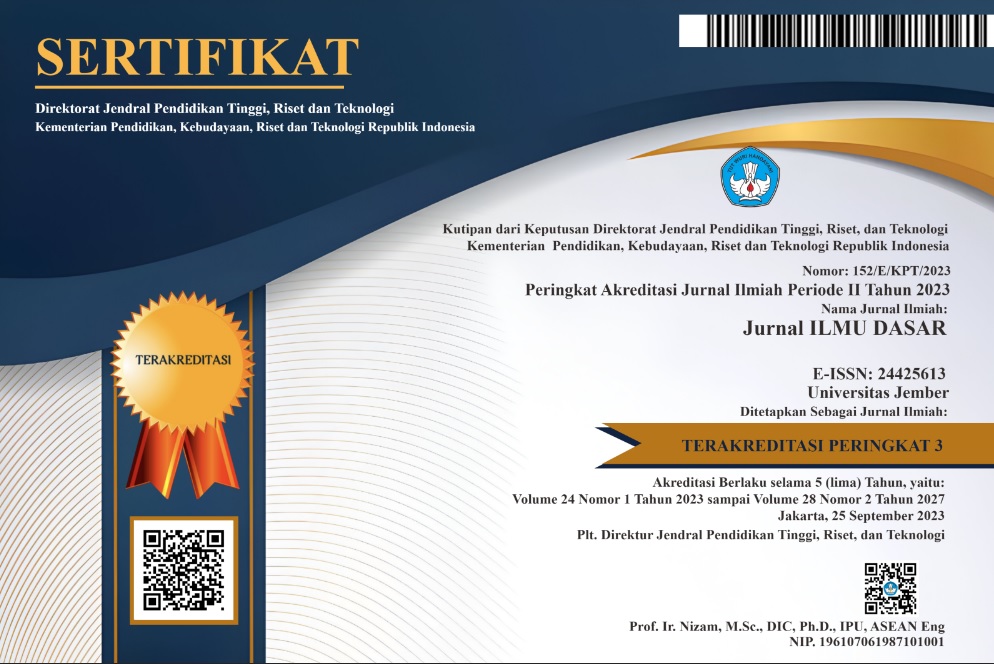Capability Increasing of Some Antibiotics for Eliminate Liberibacter asiaticus Bacteria to Find the Free-CVPD Citrus Seedling
Keywords:
Antibiotic, Liberibacter asiaticus, CVPD citrus seedlingAbstract
Citrus Vein Phloem Degeneration (CVPD, is considered to be one of the most serious diseases of citrus, having been responsible for the loss of tens millions trees. It is caused by phloem-limited bacteria, Liberibacter asiaticus which are transmitted by citrus psyllids. The bacteria could be found in the budwood as the matter for producing seedling. The use of free-pathogen seedling for citrus plantation was the one of the disease control mechanism. Founding the way to eliminate CVPD bacteria from budwood to produce the free-pathogen seedling was the goal of this research. The study was also compared to the previously research. The research used budwood from L. asiaticus infected-Siem and healthy-Japansche Citroen (JC) which were detected by PCR (polymerase chain reaction). Before grafting, budwoods was soaked in penicillin, kanamycine, tetracyclin, and choramphenicol with concentration 100, 200, 300, 400, 500, 600, 700, 800, 900, 1000 ppm and time of soaking was 25 – 30, 40 – 45, and 55 – 60 minutes. The detection of L. asiaticus in the leaves of seedlings was done by PCR. The research showed that (1) penicillin from 400 ppm to 1000 ppm and tetracyclin from 300 ppm to 1000 ppm with time of soaking 25 – 30, 40 – 45, and 55 – 60 minutes, could eliminate the CVPD bacteria from budwood; (2) kanamycine could not eliminate the CVPD bacteria and causes phytotoxis in budwood; (3) choramphenicol could not eliminate the CVPD bacteria. The penicillin and tetracyclin results different with previously research, but kanamycine and choramphenicol not different with previously research. The information from this research supports that some antibiotics could eliminate the bacteria from budwood for producing the free-CVPD seedlings.
Â







